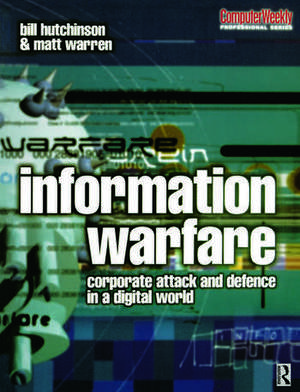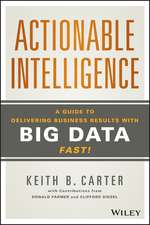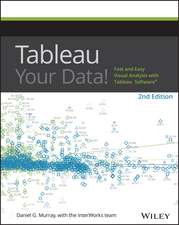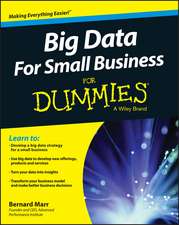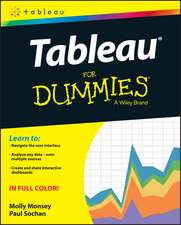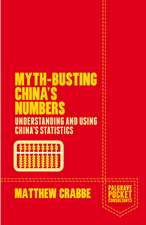Information Warfare
Autor William Hutchinson, Matthew Warrenen Limba Engleză Paperback – 22 mar 2001
This book will be of interest to executives and managers in any public or private organization. Specifically, managers or staff in the areas of information technology, security, knowledge management, public relations, or marketing should find it directly useful.
Its main purpose is to make readers aware of the new world of information saturation; thus decreasing the chance that they will become victims of those abusing the information age, whilst at the same time increasing their chances of benefiting from the new opportunities produced.
Preț: 314.58 lei
Preț vechi: 439.18 lei
-28% Nou
Puncte Express: 472
Preț estimativ în valută:
60.19€ • 62.85$ • 49.71£
60.19€ • 62.85$ • 49.71£
Carte tipărită la comandă
Livrare economică 08-22 aprilie
Preluare comenzi: 021 569.72.76
Specificații
ISBN-13: 9780750649445
ISBN-10: 0750649445
Pagini: 226
Ilustrații: 1
Dimensiuni: 189 x 246 x 12 mm
Greutate: 0.42 kg
Ediția:1
Editura: Taylor & Francis
Colecția Routledge
Locul publicării:Oxford, United Kingdom
ISBN-10: 0750649445
Pagini: 226
Ilustrații: 1
Dimensiuni: 189 x 246 x 12 mm
Greutate: 0.42 kg
Ediția:1
Editura: Taylor & Francis
Colecția Routledge
Locul publicării:Oxford, United Kingdom
Public țintă
Professional Practice & DevelopmentCuprins
Chapter 1 Concepts in information warfare; Chapter 2 Information as an intelligence weapon; Chapter 3 Deception; Chapter 4 Sources of threat for IT systems; Chapter 5 Attacks and retaliation; Chapter 6 Attack and defence; Chapter 7 An I-War risk analysis model; Chapter 8 Implications of I-War for information managers; Chapter 9; Chapter 10 Political activists, freedom fighters, and terrorists on the Web; Chapter 11 Perceptual intelligence and I-War; Chapter 12 The future;
Recenzii
Information professionals who advise their clients using information taken from the internet, or who train others to search the web, need to become more aware of the messages in this book.......a good chapter on techniques of deception shows the way that the authors of information can seek to misinform or deceive the reader. In the latter part of the book, a useful chapter on legal aspects of I-War is followed by one looking at the use of the web for political ends.....a remarkably strong feature of this book is its sheer readibility. The style is accessibile: the sentences are clear, and as concise as possible given the often technical nature of the content. Complex ideas are set out using bullet points rather than long, involved paragraphs. There are clear and appropriate diagrams and illustrations.
Information World Review
Information World Review
Descriere
This text introduces the concepts of information warfare from a non-military, organizational perspective. It is designed to stimulate managers to develop policies, strategies, and tactics for the aggressive use and defence of their data and knowledge base. The book covers the full gambit of information warfare subjects from the direct attack on computer systems to the more subtle psychological technique of perception management. It provides the framework needed to build management strategies in this area. The topics covered include the basics of information warfare, corporate intelligence systems, the use of deception, security of systems, modes of attack, a methodology to develop defensive measures, plus specific issues associated with information warfare.
This book will be of interest to executives and managers in any public or private organization. Specifically, managers or staff in the areas of information technology, security, knowledge management, public relations, or marketing should find it directly useful.
Its main purpose is to make readers aware of the new world of information saturation; thus decreasing the chance that they will become victims of those abusing the information age, whilst at the same time increasing their chances of benefiting from the new opportunities produced.
This book will be of interest to executives and managers in any public or private organization. Specifically, managers or staff in the areas of information technology, security, knowledge management, public relations, or marketing should find it directly useful.
Its main purpose is to make readers aware of the new world of information saturation; thus decreasing the chance that they will become victims of those abusing the information age, whilst at the same time increasing their chances of benefiting from the new opportunities produced.
